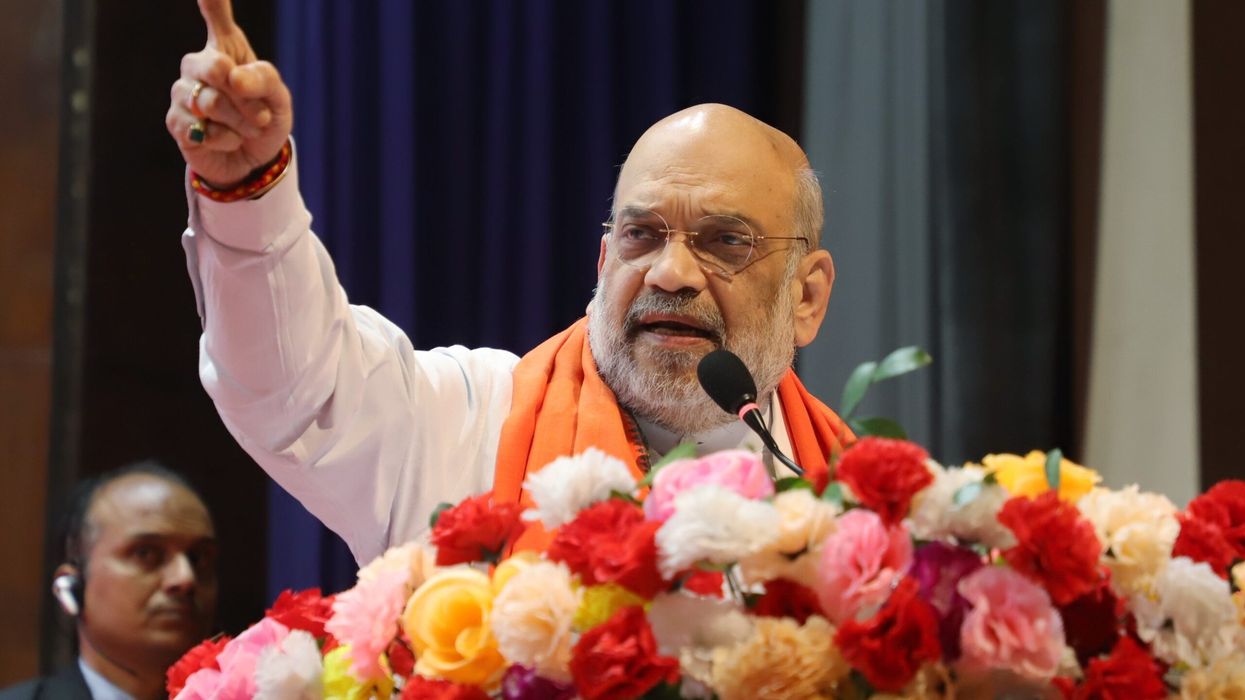India has unveiled plans to revamp its colonial-era penal code in a bid to eradicate any remnants of "the slavery of the British Raj."
Addressing the lower house of parliament on Thursday (21), after the passage of three new criminal justice bills, Amit Shah, the minister of home affairs, emphasised the goal of eliminating laws introduced by the British to regulate and "punish" Indian subjects.
"These laws were enacted by a foreign ruler to govern its subjects," Shah said. "Now, new laws are being enacted based on three basic principles — personal liberty, human rights, and equality."
Shah's remarks echoed the sentiments of prime minister Narendra Modi, who consistently advocates for the removal of all remnants of a "slave mentality."
While proponents highlight the reinforced protections for women and minors, certain aspects, notably the new sedition law, have sparked controversy amid concerns that they might restrict civil liberties, The Times reported.
Under the direction of Lord Macaulay, the British Empire introduced its penal code in India in 1860, intending to establish a unified legal framework.
Since gaining independence in 1947, India has amended its penal code approximately 80 times.
Despite these revisions, certain colonial-era concepts persisted, notably laws regarding homosexuality and adultery, both previously considered criminal offenses. India eventually legalised homosexuality in 2018.
However, even with these amendments, several within the government argued that a comprehensive overhaul of the criminal justice system was imperative.
Shah highlighted two key areas of focus: addressing crimes against women and ensuring expeditious justice.
Presently, extensive delays often lead to individuals waiting 15 to 30 years for a verdict, contributing to a backlog of 47 million cases in the courts.
The act of obtaining sex by promising marriage to a woman will now be considered a criminal offense, carrying a ten-year sentence, marking the first time such an action is legally punishable.
Additionally, the new laws provide a specific definition of consent. However, marital rape remains unrecognized as a crime.
For the first time, mob lynching has been precisely outlined as an offense, eligible for the death penalty as a punishment.
Furthermore, the updated legislation exempts doctors accused of causing death due to medical negligence from facing criminal prosecution.
Critics have pointed out that Shah's portrayal of enacting substantial improvements for women might be overstated.
They argue that the changes introduced primarily involve rephrasing, repackaging, and streamlining existing laws rather than substantive transformation.
Rebecca Mammen John, a senior advocate in the supreme court said, “We’re told that gang rape will attract a 20-year jail sentence or life in jail but we already have this provision under the current law.”
The upper house passed the laws without debate, marked by mostly empty opposition benches. Earlier in the week, the speaker expelled 143 opposition MPs due to unruly behaviour.
Members of Parliament have voiced frustration over the passage of significant reforms without discussion, especially as they fear some changes might restrict freedoms.
Asaduddin Owaisi, an opposition MP unaffected by suspension, accused Shah of granting extensive powers to the police, effectively acting as "judge, jury, and executioner."
Suspended MPs, unable to attend parliament, are contemplating legal action, considering a challenge in the Supreme Court against certain provisions of the new laws they oppose.
Shah defended the laws, asserting they were meticulously crafted after extensive consultations, including his participation in 158 meetings.
He affirmed that he has not only scrutinised every line but also every comma and full stop in the bills.












